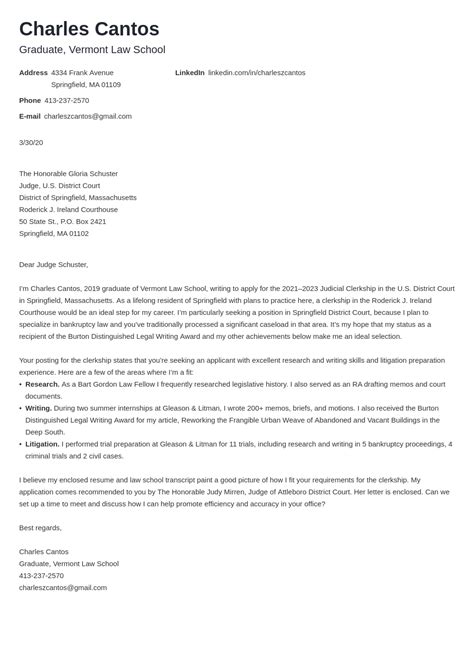In the realm of legal professions, few positions hold as much prestige and responsibility as that of a judge. This esteemed role entails being entrusted with the power to interpret and uphold the law, ensuring justice prevails. For those who possess a deep-seated passion for fairness, a career as a judge represents the pinnacle of their aspirations.
However, the journey towards becoming a judge is not one to be taken lightly or without careful consideration. It requires unwavering dedication, a wealth of knowledge, and a commitment to honing one's legal skills. While each individual's path may differ, there are essential steps that aspiring judges must navigate in order to transform their dreams into a reality.
Education
A solid educational foundation is paramount in pursuing a career as a judge. Most countries require aspiring judges to possess a law degree from a reputable institution. A comprehensive understanding of legal principles, precedents, and case law is vital for success in the judicial realm. Prospective judges must invest their time and energy in acquiring a solid legal education, ensuring they are equipped with the knowledge necessary to comprehend and apply complex legal concepts.
Experience and Expertise
Beyond formal education, practical experience is crucial for aspiring judges. Many individuals choose to gain hands-on legal experience by practicing law in various capacities, such as working as an attorney or engaging in legal research. This allows them to cultivate the necessary skills, including advocacy, legal analysis, and critical thinking. Building a diverse skill set not only strengthens one's legal abilities but also provides valuable insight into the judicial system from different perspectives.
Continuous Learning
Legal systems are dynamic and ever-evolving, necessitating the constant adaptability of judges. To stay ahead in this esteemed profession, lifelong learning is integral. Engaging in professional development opportunities, attending legal seminars, and staying abreast of current legal developments are essential practices for aspiring judges. By continuously enhancing their legal knowledge and staying informed about new legal trends, individuals can better navigate the complexities of the judicial system and fulfill their role with competence and confidence.
Understanding the Role of a Judge

Exploring the significance of a judge entails comprehending the essential responsibilities and duties that come with this distinguished profession. A judge is entrusted with the critical task of rendering impartial judgments based on the factual evidence and applicable laws within a legal system. Through their extensive knowledge, judges ensure justice, maintain the integrity of the legal system, and ultimately contribute to a fair and just society.
Judges:
- Exercise their legal expertise
- Interpret and apply the law
- Maintain impartiality
- Preside over trials and hearings
- Ensure fair courtroom proceedings
- Deliver verdicts and decisions
- Impose sentences and penalties
- Resolve disputes
- Safeguard constitutional rights
- Uphold ethical standards
Moreover, judges possess:
- Profound legal knowledge
- Excellent analytical and critical-thinking skills
- Impartiality and objectivity
- Good communication and listening skills
- Attention to detail
- Sound judgment and decision-making abilities
- Patience and composure
- Leadership qualities
- High ethical standards
In summary, understanding the multifaceted role of a judge involves recognizing their duty to fairly interpret and apply the law, make impartial decisions, and ensure justice prevails. Achieving the dream of becoming a judge requires honing a diverse set of skills and acquiring a deep understanding of the legal system.
Building a Solid Legal Foundation
Establishing a robust and comprehensive understanding of the legal field is a fundamental step towards realizing your aspirations of presiding as a judge. Developing a strong legal background encompasses various aspects that enable you to navigate the intricacies of the judicial system with proficiency and confidence.
1. Academic Pursuit: Embarking on a journey within the legal profession necessitates acquiring a strong educational foundation. Pursuing a bachelor's degree in law or a related field is often the first milestone on this path. This academic pursuit equips you with a broad knowledge base encompassing legal principles, theories, and methodologies that lay the groundwork for a successful legal career.
2. Legal Internships: Gaining practical experience through internships at law firms, legal clinics, or governmental bodies is crucial for developing a strong legal background. These opportunities expose you to real-world legal scenarios, enhance your understanding of legal procedures, and provide valuable insights into the workings of the justice system.
3. Research and Writing Skills: Cultivating excellent research and writing skills is essential for a successful legal career. Effective legal professionals possess the ability to conduct comprehensive legal research, analyze cases, and construct persuasive arguments. Developing these skills through coursework, legal writing competitions, and participating in moot court sessions contributes significantly to building a solid legal foundation.
4. Networking and Mentoring: Building a network of legal professionals and mentors is vital in developing a strong legal background. Engaging with experienced lawyers, judges, and legal scholars can provide guidance, advice, and access to valuable opportunities. Actively participating in legal associations, attending conferences, and seeking mentorship opportunities can help forge meaningful connections within the legal community.
5. Continuous Learning: The legal landscape is ever-evolving, making continuous learning a crucial aspect of developing a strong legal foundation. Staying updated with changes in laws, regulations, and judicial precedents through attending seminars, workshops, and continuing legal education programs ensures that your knowledge remains current and relevant.
By focusing on these key areas of development, you can establish a strong legal background that will serve as the bedrock of your journey towards a fulfilling career as a judge.
Completing a Law Degree

Embarking on the path toward a future in the legal profession involves the pursuit of a comprehensive education in law. Completing a law degree lays the foundation for individuals aspiring to become judges, by equipping them with the necessary knowledge and skills to interpret and apply the law in a fair and just manner.
Obtaining a law degree involves immersing oneself in a rigorous academic program that encompasses a wide range of subjects relevant to the legal field. Students will delve into areas such as constitutional law, criminal law, civil procedure, and contract law, among others. Through a combination of lectures, seminars, and practical exercises, aspiring judges gain a deep understanding of the legal framework and develop an analytical approach to legal problems.
In addition to academic studies, hands-on experience plays a crucial role in completing a law degree. Many programs offer internships or externships that allow students to work alongside experienced legal professionals in law firms, government agencies, or judicial offices. These real-world experiences provide invaluable insights into the day-to-day operations of the legal system and enhance practical skills, such as legal research, writing, and advocacy.
Moreover, writing a compelling law dissertation or thesis is often a requirement for completing a law degree. This research project allows students to delve into a specific area of law in depth, applying their analytical skills and demonstrating their ability to engage in critical thinking. It is an opportunity for aspiring judges to contribute to legal scholarship by exploring complex legal issues and proposing innovative solutions.
Ultimately, completing a law degree is a significant milestone on the journey toward a career as a judge. It not only equips individuals with the necessary knowledge and practical skills but also instills in them the values of integrity, fairness, and impartiality. Through their education, aspiring judges lay a solid foundation upon which they can build their legal careers and pursue their ultimate goal of serving justice and upholding the rule of law in society.
Gaining Practical Legal Experience
One crucial aspect of pursuing a career as a judge involves gaining practical legal experience. Acquiring hands-on experience within the legal field can greatly enhance your understanding of the justice system and provide invaluable insights into the intricacies of the profession.
Developing practical legal experience can be achieved through a variety of avenues. One option is to seek internships or externships at law firms, government agencies, or judicial offices. These opportunities allow aspiring judges to work alongside experienced professionals, observe courtroom proceedings, and participate in legal research and writing tasks.
Another avenue for gaining practical legal experience is by volunteering at legal aid organizations or pro bono clinics. Engaging in pro bono work not only allows you to contribute to society by providing legal assistance to those in need, but also enhances your skills in areas such as legal research, case analysis, and client representation.
Furthermore, participating in moot court competitions or law clinics while studying in law school can greatly contribute to your practical legal experience. These activities provide opportunities to simulate court proceedings, engage in legal argumentation, and receive feedback from experienced judges and lawyers.
In addition to these avenues, it is essential to actively seek out opportunities for networking within the legal community. Attending legal conferences, seminars, and workshops can not only expand your knowledge but also enable you to connect with professionals in the field. Building relationships with legal practitioners can lead to mentorship opportunities or potential job offers, both of which can significantly enhance your practical legal experience.
Ultimately, gaining practical legal experience is an integral step towards achieving your dream of becoming a judge. It provides a solid foundation for understanding the legal system, sharpening crucial skills, and establishing connections within the legal community. By actively pursuing these opportunities, you are taking concrete steps towards your career goal in the legal profession.
Building a Professional Network

Developing a strong professional network is crucial for individuals aspiring to a career as a judge. It involves connecting with professionals from various fields who can provide guidance, support, and opportunities for growth in the legal industry.
One effective way to start building a professional network is by attending legal conferences, seminars, and workshops. These events provide valuable opportunities to meet legal professionals, including judges, lawyers, and legal scholars. Engaging in conversations and exchanging ideas with experienced professionals can help individuals gain insights into the intricacies of the legal field and develop relationships that may be beneficial in the future.
Another avenue to expand one's network is through participation in professional organizations and associations that focus on law and the judiciary. These groups often host networking events, panel discussions, and mentorship programs that allow individuals to connect with like-minded individuals and established professionals. Moreover, joining online legal communities and forums can offer opportunities to engage in discussions, seek advice, and establish connections with legal experts and peers.
Building a professional network goes beyond simply attending events and joining organizations. It also requires individuals to actively reach out to potential mentors and seek out opportunities for collaboration or internships in relevant legal settings. Developing relationships with individuals who have excelled in the legal field can provide valuable guidance, mentorship, and potential recommendation letters in the future.
Furthermore, utilizing social media platforms, such as LinkedIn, can be an effective tool for networking. Creating a professional profile and actively engaging in discussions, sharing legal insights, and connecting with professionals in the field can help expand one's network and enhance visibility within the legal community.
In summary, building a professional network is an essential step towards achieving a career goal as a judge. By actively participating in legal events, joining organizations, seeking mentorship opportunities, and utilizing online platforms, individuals can establish connections and gain valuable insights that can contribute to their professional growth and success in the legal field.
Pursuing Judicial Clerkships
In the pursuit of a career in the legal field, aspiring judges often seek opportunities for growth and development beyond their initial educational and professional milestones. One such avenue worth exploring is the path of judicial clerkships. This section will delve into the importance and benefits of pursuing judicial clerkships, outlining the various steps and considerations to enhance your chances of securing a clerkship position.
Understanding the Role
Before embarking on the journey towards a judicial clerkship, it is essential to have a comprehensive understanding of the role and responsibilities it entails. Judicial clerks play a vital role in the legal system, assisting judges in various tasks such as conducting legal research, drafting opinions, and analyzing complex legal issues. By gaining firsthand experience in the workings of a judge's chambers, clerks develop invaluable skills and insights that contribute to their overall professional growth.
Researching Opportunities
Once familiar with the role, aspiring clerks should conduct thorough research to identify potential opportunities in their desired jurisdiction or court. Various federal and state courts offer clerkship programs, each with its unique requirements and application procedures. By carefully reviewing the prerequisites and preferences of each court, you can tailor your application to align with the specific needs and interests of potential employers.
Building a Strong Application
Successful applicants for judicial clerkships possess a combination of legal knowledge, exceptional academic records, and strong research and writing skills. To enhance your chances of securing a coveted clerkship, it is crucial to build a compelling application. This involves crafting a well-written and concise resume, drafting a persuasive cover letter, and obtaining strong letters of recommendation from professors, mentors, or legal professionals who can attest to your qualifications.
Navigating the Application Process
The application process for judicial clerkships often involves multiple rounds, including submitting written applications, participating in interviews, and potentially undergoing additional assessment tests. Paying attention to detail and ensuring that all application materials are error-free and tailored to each specific court will demonstrate your commitment and professionalism. Furthermore, being well-prepared for interviews and showcasing your passion for the law and desire to contribute to the judiciary will greatly increase your chances of success.
Networking and Gaining Experience
Networking within the legal field can significantly enhance your prospects of securing a judicial clerkship. Building relationships with judges, practicing attorneys, and current or former clerks can provide valuable insights and potentially lead to mentorship or recommendation opportunities. Additionally, gaining relevant experience through internships or externships at law firms, government agencies, or legal aid organizations can bolster your application and demonstrate your dedication to the legal profession.
Conclusion
Pursuing judicial clerkships is a strategic step towards achieving a successful career as a judge. By understanding the role, researching opportunities, building a strong application, navigating the application process, networking, and gaining experience, you can increase your chances of obtaining a clerkship position and furthering your dream of serving the judiciary.
Applying for Judicial Positions

Exploring opportunities in the legal profession and pursuing a career in the judiciary involves a comprehensive application process. This section will outline the necessary steps and provide valuable insights into applying for judicial positions.
- Research and Identify: Begin by researching various judicial positions available in your desired jurisdiction. Familiarize yourself with the qualifications, requirements, and expectations for each role.
- Educational Requirements: Assess the educational criteria needed to become a judge in your jurisdiction. This may include obtaining a law degree, completing specific legal courses or certifications, and gaining relevant legal experience.
- Build Experience: Gain practical experience in the legal field to enhance your chances of securing a judicial position. Consider opportunities such as internships, clerkships, or working as an associate in a law firm to develop your skills and understanding of the law.
- Networking: Establish meaningful connections within the legal community. Attend professional events, join bar associations, and engage with experienced judges and legal professionals to expand your network and gain valuable insights into the judicial system.
- Application Preparation: Thoroughly review the application requirements for judicial positions. Prepare a comprehensive resume, highlighting relevant legal experience, academic achievements, and notable accomplishments. Craft a persuasive cover letter emphasizing your passion for justice and ability to impartially interpret the law.
- Interview Preparation: Should your application move forward, be prepared for interviews. Research common interview questions, practice responding to hypothetical scenarios, and improve your understanding of legal procedures and precedents.
- Continuing Education: Aspiring judges should actively seek opportunities for ongoing legal education to stay updated on current laws, rulings, and legal practices. This dedication to self-improvement showcases a commitment to professional growth and development.
- Professional References: Prepare a list of professional references who can provide insight into your legal abilities and character. Choose individuals who can speak to your ethical conduct, legal acumen, and suitability for a judicial role.
- Post-Application Follow-up: After submitting your application, consider sending a brief follow-up message expressing your continued interest in the position. This gesture demonstrates your proactive approach and professionalism.
By following these steps and putting in the necessary effort and dedication, you can strengthen your chances of successfully applying for judicial positions and pursuing your career aspirations in the legal field.
Continuing Education and Professional Growth
In the journey to fulfill your aspiration of becoming a judge, it is crucial to recognize that learning and personal development are ongoing processes that continue throughout your career. This section emphasizes the significance of continuing education and professional growth, highlighting the essential steps you can take to continually enhance your knowledge, skills, and expertise in the legal field.
One way to pursue continuous learning is by actively engaging in professional development opportunities. This may include attending seminars, workshops, and conferences that focus on specific areas of law. By participating in these events, you can broaden your understanding of legal concepts, gain insights from experienced professionals, and stay updated on the latest developments within the justice system.
Another key aspect of continuing education is staying informed about legal reforms and legislative changes. Subscribing to reputable legal publications and journals can provide you with valuable information and analysis on recent court decisions, new laws, and emerging trends. This knowledge will not only enhance your professional acumen but also help you stay up-to-date with the evolving landscape of the legal profession.
Building a network of fellow legal professionals is also beneficial for your ongoing growth as a future judge. Engaging with colleagues, mentors, and established judges can provide you with valuable mentorship, guidance, and opportunities for collaboration. Participating in legal organizations and joining professional associations can facilitate these connections, enabling you to learn from others' experiences and exchange ideas, ultimately enriching your career journey.
- Continuing education through professional seminars, workshops, and conferences
- Staying informed about legal reforms and legislative changes through legal publications and journals
- Building a network of legal professionals through mentorship, guidance, and professional associations
By prioritizing continuing education and actively seeking opportunities for professional growth, you can fuel your aspiration of becoming a respected judge. Remember, the pursuit of knowledge and ongoing learning are integral components of a successful career in the legal profession.
FAQ
What are the steps to become a judge?
To become a judge, you must first obtain a bachelor's degree in law or a related field. After that, you need to attend law school and earn a Juris Doctor (J.D.) degree. Once you have completed your law degree, you must pass the bar exam in the state where you intend to practice. After gaining some experience as a lawyer, you can then apply for a judicial appointment or run for an elected judicial position.
Is it necessary to have prior experience as a lawyer to become a judge?
While it is not mandatory to have prior experience as a lawyer to become a judge, it is highly recommended. Generally, judges are chosen from experienced attorneys who have a deep understanding of the law and courtroom procedures. Legal experience helps judges in making informed decisions and ensures the credibility of their judgments.
What qualities and skills are important for a successful career as a judge?
Several qualities and skills are crucial for a successful career as a judge. Strong analytical and critical thinking skills, excellent legal knowledge, impartiality, sound judgment, effective communication skills, and the ability to remain calm under pressure are key attributes for a judge. Additionally, patience, integrity, and a commitment to upholding the law and promoting justice are also important qualities for a judge to possess.
Are there any specific requirements to pass the bar exam?
Yes, each state sets its own specific requirements to pass the bar exam. Generally, these include completing a law degree from an accredited institution, submitting an application, paying the required fees, and successfully passing a written examination on various legal subjects. Additionally, some states may also require candidates to pass an ethics examination before being admitted to the bar.
Can I become a judge without a law degree?
No, a law degree is a fundamental requirement to become a judge. Without a law degree, you cannot possess the necessary legal knowledge and understanding of the justice system to effectively fulfill the responsibilities of a judge. A bachelor's degree in law or a related field is the first step towards pursuing a career as a judge.
What qualifications do I need to become a judge?
To become a judge, you typically need a law degree and several years of experience working as a lawyer. Additionally, you may need to pass a bar exam and meet certain age and residency requirements set by the jurisdiction in which you plan to practice.



